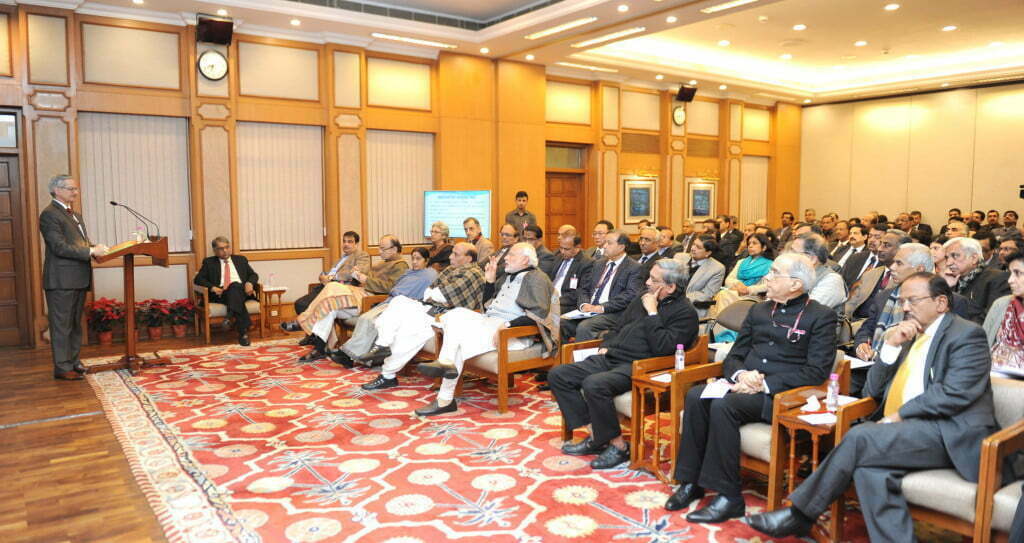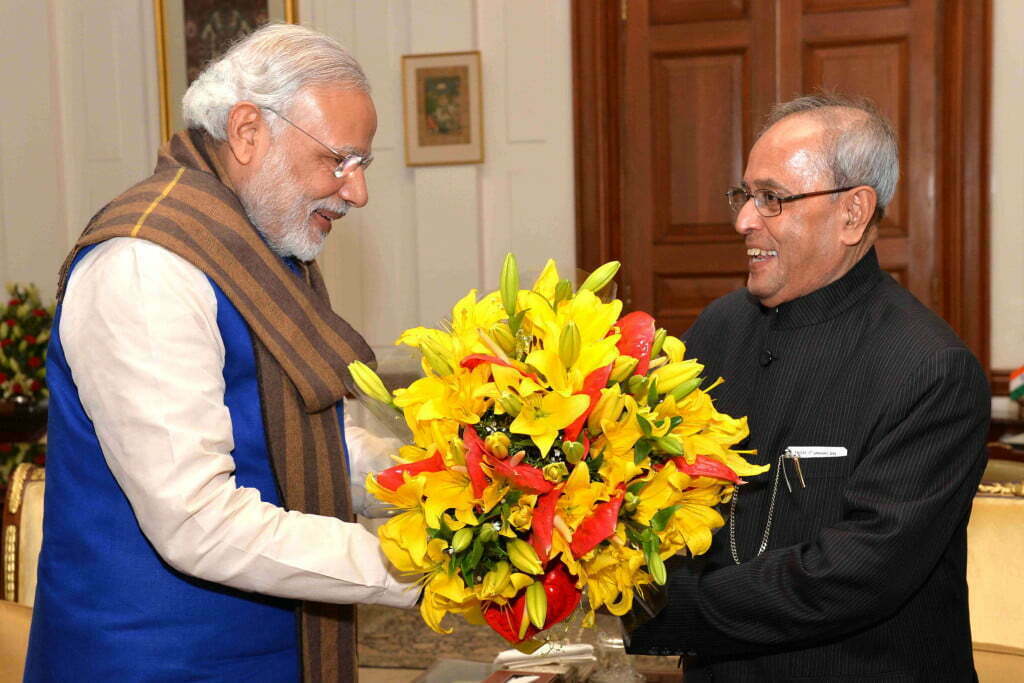
Narendra Modi won the clear mandate in the last election by riding on emerging third generation of Indians since Independence. It constitutes nearly 65 percent of total population that did not want to continue with traditional conservative politics that attended to economic institutions oriented to a welfare programme. Narendra Modi promised a change by relegating the traditional issues of the Bharatiya Janata Party and rendering the Congress irrelevant to the transformation of the Indian young. NaMo won the election on the BJP symbol but his economic programme. He is autocrat by temperament though he presents a picture of an actual Democrat. His troubles are in the mediocrity of his teammates who are unable or unwilling to leave their traditional concepts behind to be on the same page with him. His other difficulty is the century-old social prejudices interwoven in the social structure. He has to overcome resistance to his new ideas from within.
His first action after swearing-in as the Prime Minister on May 26, 2014, was to show politicians of his ilk their place. He summoned 49 top bureaucrats to tell them to come to his directly whenever they faced opposition to the implementation of policies of the new government. Only two aspirants hoped to replace him some day in case the Sangh chief decided to bring about the change in the leadership structure. NaMo not only took to task son of the senior most leader Raj Nath Singh for his certain undesirable activities but also let the world know what transpired in private one to one meeting. It was enough to make the senior man put his tail between his legs and bend his head. No other leader could even think of resisting him.
NaMo visited nearly 15 countries, mostly developed to solicit capital and capitalists to come to India to make their productions in India with the assured availability of huge bank of skilled human hands to operate their means of production. A response was tepid because India is still a democracy, unlike China where no resistance or dissent is tolerated. Traditional forces were up in arms against his endeavour to shift the Indian economy orientation from agriculture to industrialisation with foreign capital pouring in various sectors to expedite the pace of development. It was also a solution to the addition of 12 million educated young to work force each year but without the adequate number of employment opportunities. He raised hopes in young hearts by pointing out that the world is waiting to run their machines of production if they acquired skills for it. India is a young nation with average work force age at 27 years. India has not become rich but India is certainly on the way with tremendous potential available. Educated Indians with their multi- faceted intelligence are handling higher positions in developed world. Six Indians have a place in Fortune 500 billionaires list. They emerged in the last twenty years after the economy was able to run away from peg to that it was tied for previous 40 years.
The major change he effected is to deliver a message that people have to fight their battles with their circumstances. The government will function as facilitator ad, not a doer of all things as was the assigned role of governance in earlier years. The government assumed the responsibility for doing everything with no part of private individuals, as persons or as corporate sector in economic activities without the specific permits from the government. Poor were made to depend on government welfare schemes instead of contributing to national assets with the usage of the capabilities.
The nature of economic institutes since Independence was complete with middle classes allowed entry and deprived kept at its doorsteps. NaMo started opening the gates with the easing of the opening of bank accounts without presenting proof of their residence, a compelling need due to security reasons. Thus, he brought 120 million families in the banking circuit. He launched Clean India campaign to cleanse dirt all around that caused high pollution leading to higher incidence of diseases among poor.
It may appear as if he is building his vote bank that is different from the traditional vote bank of conservative middle class.
In last two decades, there is a psychological change even in poor who think empowerment of their children through quality education is essential to pull them out of the abyss of poverty, deprivation and socio-economic injustice, a plight that they suffered for their entire life. Twenty thousand landless workers settled in Punjab for five years returned to their home state Uttar Pradesh to ensure their school going child received a free laptop that Akhilesh Yadav had promised as a part of the election campaign for the Assembly polls. Much larger numbers of children are attending schools. The child going to school is more important for poor parents than their joining the child labour to add to the family income. The dignity of life has replaced roti for the day in their mind. It is a significant change.
Can Narendra Modi bring about a change of turning the poor from resources guzzlers through welfare schemes to creators of national assets through use of their ability is a question that has no easy answers. His team has not been able to understand his objective and his stress on opening various institution gates for all. There is a hopeful sign that the electorate did not respond to the two welfare schemes on which the Congress hopes of a return to power were banked in the last election. Thus, circumstances and opportunities brought by transformation of the Indian mind. But NaMo is alone and he will have to face the resistance more from within than from the opposite bench. Change always is resisted because it disturbs the settled life. Everyone wants change but in others. Interesting to watch will be the way NaMo will tackle this mentality to emerge at the end of his first term. He has undertaken a challenging task with his promise for a transformation the life styl of the poor but also the Indian economy and the Indian way of life.

